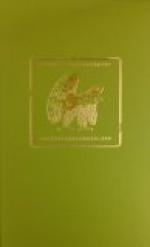To facilitate the handling of freight, the railroad company had laid a siding at the nearest point in Hesperides Vale; then, for the convenience of the workmen, the daily local made regular stops, and the little station bore the name of Weatherbee. Later, at the beginning of the year, it had become a post-office, and the Federal building included a general store. Also, at that time, the girders of a new brick block rose on the adjoining lots, and a sign secured to the basement wall announced: “This strictly modern building will be completed about June first. For office and floor space see Henderson Bailey.”
The financier, who had motored up the valley in a rented car, noted these indications of an embryo town with interest.
“Who is Henderson Bailey?” he asked.
And the chauffeur answered with surprise: “Don’t you know Bailey? Why, he’s the man that got in on the ground floor. He owns the heart of Hesperides Vale. That was his apple orchard we passed, you remember, a few minutes ago. But the man who is backing him on that brick block is Lucky Banks of Alaska. They are pulling together, nip and tuck, for Weatherbee.”
“Nip—and Tuck,” repeated Morganstein thoughtfully. “That reminds me of a young team of bays I considered buying last fall, over at North Yakima. Rather well named, if you knew ’em. But they were a little too gay for Seattle hills and the lady I expected would drive ’em. George, though, they made a handsome showing. A dealer named Lighter owned ’em, and they won the blue ribbon for three-year-olds at Yakima and Spokane.”
“I know them,” replied the chauffeur. “They are owned here in the valley now; and Lucky Banks’ wife is driving them. You can meet her most any day speeling down to the Columbia to see her goats.”
“Goats?” queried Frederic.
“Yes, sir. Didn’t you know she used to keep a flock of Angoras up here? It was her land before she was married. But when Banks turned up with his pile and started the orchards, the goats had to go. It wouldn’t have taken them a week to chew up every stick he planted. So she hired a man to winter them down on the Columbia, where she could keep an eye on them. Strange,” the chauffeur went on musingly, “what a difference clothes make in a woman. Nobody noticed her much, only we thought she was kind of touched, when she was herding those billies by herself up that pocket, but the minute Banks came, she blossomed out; made us all sit up and take notice. Yes, sir, she’s sure some style. To see her in her up-to-date motoring-coat, veil to match, cape gloves, and up behind that team, you’d think the Empress of India had the road.”




